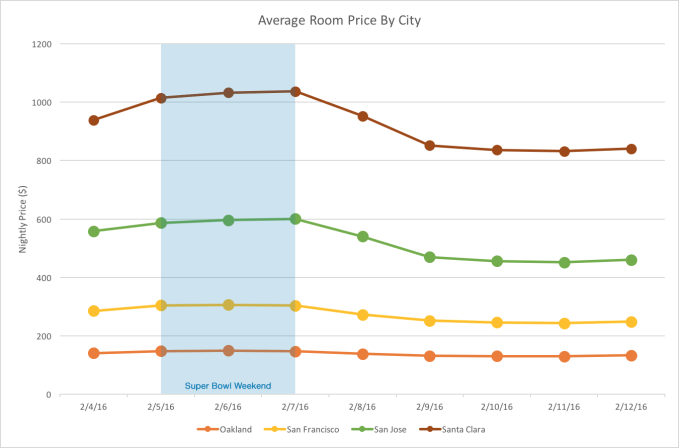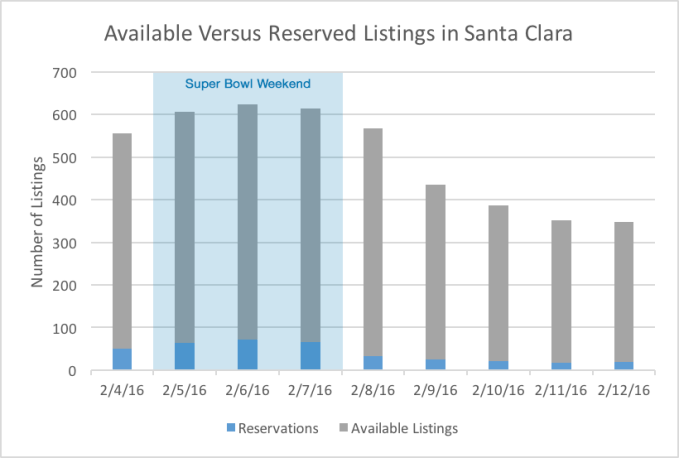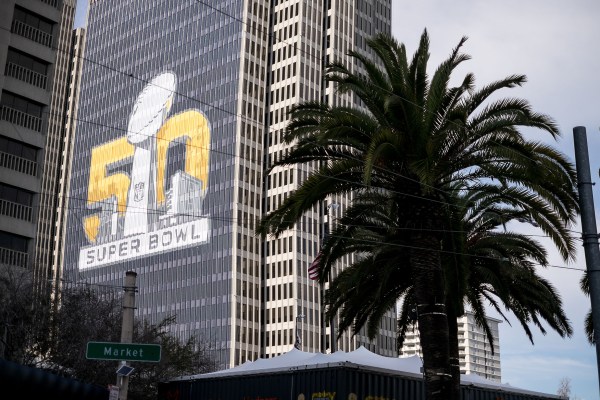As Super Bowl 50 draws near, some Airbnb hosts are hoping for a substantial payout. Crazy listings are popping up – this home is going for $6000 a night.
If that’s out of your price range, how about sharing a room for only $1300 per night?
The thought process seems solid – an estimated million people descending on the already housing-strained San Francisco Bay area. With such high profile demand, the obvious conclusion hike prices sky-high, and hope for a big payday. But will hosts get it?

Conventional Wisdom is Too Conventional
Probably not — let’s take a look at the data. In Santa Clara, where Levi’s Stadium resides, the average Airbnb price for booked rooms is only up 25% compared to nearby weekends. How can this be?
The answer lies in the good ol’ laws of supply and demand — unlike hotel rooms, the supply of sharing economy accommodations is elastic – the higher the price (or perceived price) goes, the more people put a place on the market. In the case of Santa Clara, there are 86% more Airbnbs listed for Super Bowl weekend than the surrounding weekends. There are so many properties available, that there’s actually excess supply for Super Bowl weekend, which has put a cap on the additional revenue a host could make.
Bay Area wide, the trend is the same. In only the past three months, Airbnb hosts with only one listing have grown from 9,627 to 13,732 – an increase of 42%. This elasticity is hidden from a would-be Airbnb host – if exposed, it may make people think twice about asking for crazy rents.

